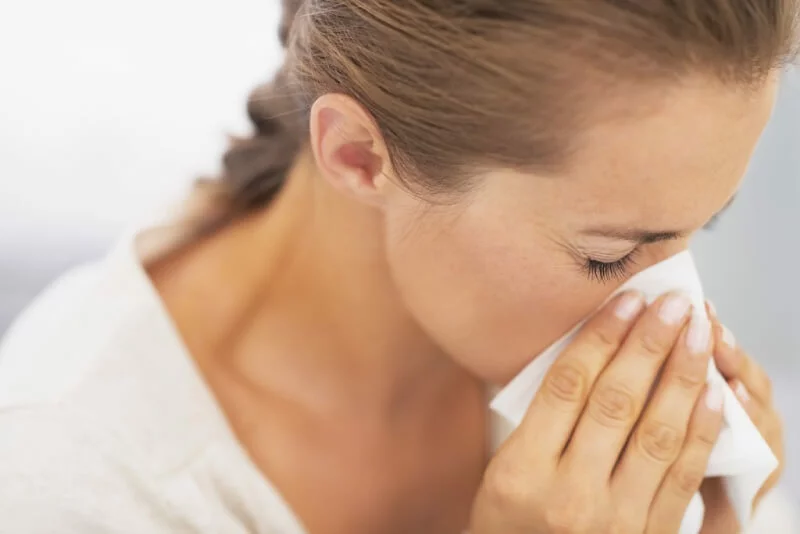Having an allergy reaction can be one of the most annoying things that could happen. Furthermore, allergic reaction often causes fear in a person as it usually means a life-long condition and the person who has had this would need to pay close attention in their life when eating, drinking, touching or even breathing. In severe cases, allergic reactions may lead to life-threatening conditions when it is not managed properly. One of the common medications used to treat this condition is Telfast 180 mg. Allergic rhinitis is often associated with allergic reaction.
Allergic rhinitis is defined as the inflammation of the inside of the nose. Often so, it is triggered by an allergic reaction. An allergic reaction is the exaggerated body immune’s system towards allergens. Allergen are substances that normally do not trigger the body’s immune reaction. In a person with allergic rhinitis, exposure to allergen triggers the allergy reaction. A person with other allergies or asthma conditions are more likely to get allergic rhinitis. Having siblings or parents with allergic rhinitis may make a person susceptible in developing allergic rhinitis.
Symptoms of allergic rhinitis are similar to other allergic reactions. It may also be similar and mistaken to those having cold flu. Symptoms include runny nose, frequent sneezing, red itchy eyes, itchy mouth, skin rash, stuffy nose and fatigues. Other symptoms are headache, earache, loss of smell, pain around the temples and forehead, itchy throat and coughing. A person with any of these symptoms, especially right after an exposure or constant exposure towards possible allergens, should be suspected with allergic rhinitis. Although most of the symptoms are considered harmless, these symptoms may badly affect a person’s life or may not go away even after taking medicine. When allergic rhinitis starts to cause great problems or when they do have other respiratory conditions such as asthma, they should seek medical advice from a doctor.
Since allergic rhinitis can be very annoying or disturbing, patients typically try to get treatment to alleviate symptoms. It is worth noting that there is no cure for allergic rhinitis. The good news is, treatments available do help to improve symptoms. Typically, antihistamines are good enough to reduce symptoms. It is usually available in tablets but may also be found in syrup which is easier for children or those having trouble to have it in tablet form. Decongestants can also help to relieve congestion or runny nose and help patients breathe better. Corticosteroid nasal spray is often available with a doctor’s prescription. Immunotherapy is another treatment that may be considered but it is usually quite expensive and only be provided in certain cases. Although most cases of allergic rhinitis can be relieved with over-the-counter medication, this might not be the case for all cases of allergic rhinitis. Patients that have symptoms for the first time or symptoms that get worse, should get checked by a doctor to get the right medication.
Beside medication, there are other things that can be done to help alleviate symptoms of allergic rhinitis. One of the best ways is to avoid possible triggers that could be the cause for the symptoms. It is understandable that it can be difficult to completely avoid these potential allergens but it is worth paying close attention to when and where the symptoms start to occur. Making a diary out of this information can help identify the pattern and the possible allergens. This will help patients to be cautious and avoid the triggers. Patients can always have discussions with doctors on how to better understand the allergens.
Patients may also want to regularly rinse the nasal passages with salt water solution to steer away irritants in the nose and keep the nose clean. Keeping the house clean and neat by vacuuming and mopping can further reduce potential allergen. Patients might want to invest in good quality HEPA air filters and dust mite-proof bed sheets. Old pillows and bolsters should be thrown away instead of keeping them. Patients are advised to keep the living space in low humidity and good ventilation. Patients are also advised to use a face mask in covering nose and mouth when being outdoors especially in heavily-industrial areas, haze or grassy flowered areas.
It can be concluded that allergic rhinitis is inflammation of the inside of the nose caused by allergies that trigger immune reaction. It is a life-long condition as there is no cure to eradicate the condition. If you are trying to stop allergic rhinitis, medication can be a great help and of course medication works best when it is advised by doctors. Allergic rhinitis may improve by time but it usually takes many years and is unlikely for the condition to disappear forever. It is important to treat allergic rhinitis to avoid complications such as nasal polyps, sinusitis and middle ear infections that can cause severe symptoms in future.
Categories
Recent Posts
Advertisement


